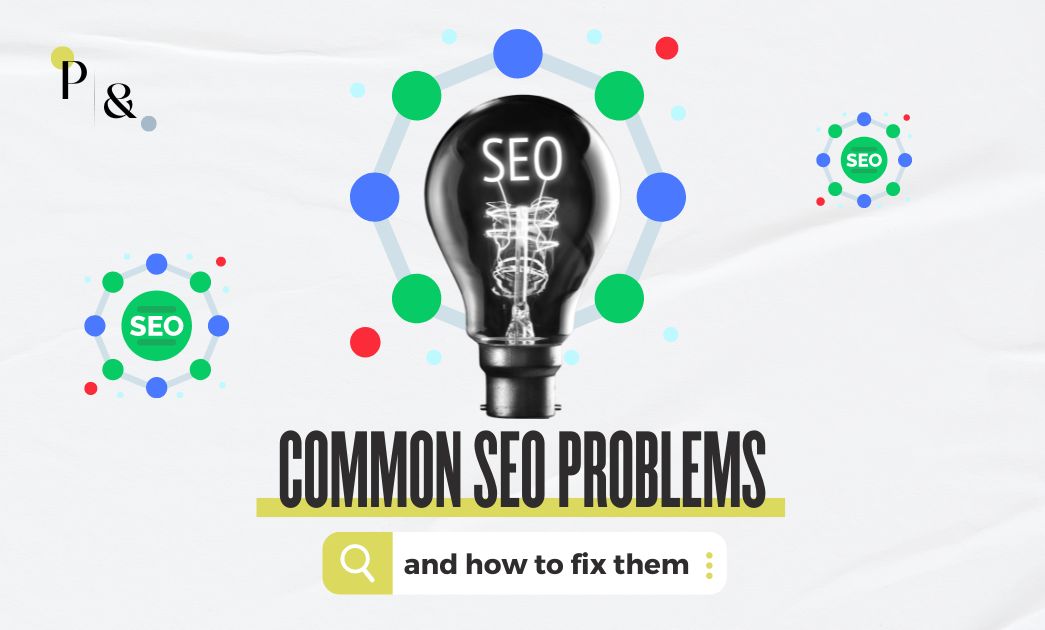Imagine having an SEO-rich website that ranks well on search engine results pages and attracts organic traffic. Love the sound of it, don’t you? But it’s definitely not easy to maintain an error-free website either. Even the smallest of issues can stop your website from ranking high.
But we got your back. We have gathered some of the most common SEO problems that people face with solutions to help our fellow SEO fellas out. So, let’s get straight into it!

1. Slow Page Loading Speed:
Problem: Slow-loading pages can lead to a poor user experience and lower search engine rankings.
Solution: Optimize images, use browser caching, enable compression, and consider using a Content Delivery Network (CDN) to improve page speed.
2. Poor Mobile Optimization:
Problem: With the majority of searches happening on mobile devices, a non-mobile-friendly website can harm rankings.
Solution: Use responsive design, ensure mobile-friendly layouts, and test your website on various mobile devices.
3. Thin or Low-Quality Content:
Problem: Content that lacks depth or originality may not provide value to users, leading to lower rankings.
Solution: Create high-quality, comprehensive, and relevant content that addresses users’ needs and questions.
4. Keyword Stuffing:
Problem: Overusing keywords unnaturally in content can lead to poor user experience and may be penalized by search engines.
Solution: Focus on creating natural, reader-friendly content that incorporates keywords organically.
5. Broken Links and Redirects:
Problem: Broken links and improper redirects can lead to a frustrating user experience and negatively impact SEO.
Solution: Regularly check and fix broken links, and use proper redirects (301 for permanent, 302 for temporary).
6. Lack of Proper Header Tags:
Problem: Improper or missing header tags (H1, H2, etc.) can confuse search engines about the structure and importance of your content.
Solution: Use header tags to structure your content logically and emphasize key points.
7. Duplicate Content:
Problem: Having identical or very similar content on multiple pages can lead to confusion for search engines and lower rankings.
Solution: Ensure that each page has unique, valuable content. Use canonical tags to indicate preferred versions.
8. Missing Meta Descriptions and Title Tags:
Problem: Meta descriptions and title tags provide crucial information to users in search results. Missing or poorly optimized ones can hurt click-through rates.
Solution: Write unique and attractive meta descriptions and title tags for each page, incorporating relevant keywords.
9. Inadequate Backlinks:
Problem: Having few or poor-quality backlinks can limit your website’s authority and ranking potential.
Solution: Focus on building high-quality, relevant backlinks from authoritative sources through content marketing, outreach, and networking.
10. Ignoring Local SEO:
Problem: Neglecting local SEO strategies can hinder your visibility in local searches.
Solution: Optimize Google My Business, use local keywords, and encourage customer reviews to improve local search rankings.
And that’s a wrap! But remember that SEO is an ongoing process. Make sure to regularly monitor your website’s performance, stay updated on search engine algorithm changes, and adapt your strategies accordingly to maintain and improve your search rankings.


